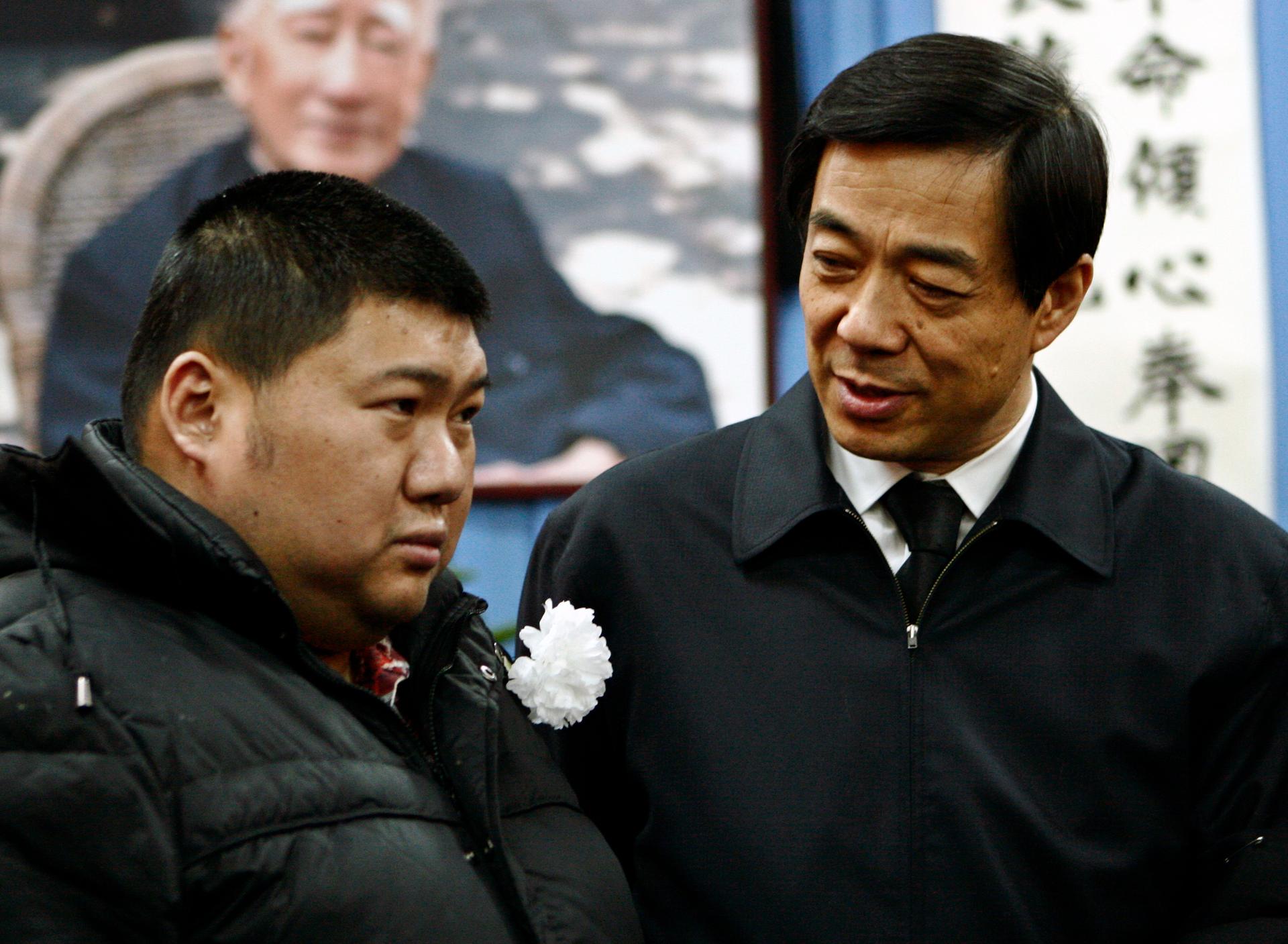Economy underpins power transition, political scandal in China
China’s former Chongqing Municipality Communist Party Secretary Bo Xilai, right, talks to Mao Xinyu, grandson of the late Chairman Mao Zedong, at a mourning ceremony held for Bo’s father Bo Yibo, former vice-chairman of the Central Advisory Comm
China is having a difficult time keeping critical and controversial comments about the Chinese Communist party from circulating on the Internet.
And the source of the problem is the people of China trying to understand what’s going on in their own government with biggest political scandal in decades. The fall of hardliner and once-rising star Bo Xilai has become linked to the murder of a British businessman, Neil Heywood. Bo’s wife, Gu Kailai, is accused of that murder and Bo is accused of trying to cover up or intervene in the investigation.
The scandal comes as the Communist Party undergoes its once-a-decade power transition — and that too has been embroiled in rumor and speculation. Some websites have gone so far as to say there has was a coup in Beijing. The Chinese government has tried to move quickly to tamp that rumor down.
Jonathan Fenby, a contributor to The New York Times and author on Chinese economics, said the Bo affair shows a lot about how China was working.
“Bo Xilai was a rast-rising … rockstar of Chinese politics,” Fenby said. “He was aiming for the very top, the Standing Committee of the Politburo of the Chinese Communist Party.”
Those are the nine men who run China. This fall, six or seven of those nine men will be replaced. Bo was aiming to be one of the new guys named and, Fenby said, aimed to take over the internal security operations.
That would have made him extremely powerful.
Heywood’s death was initially thought to be alcohol related. It was only after the British government intervened and asked for a thorough investigation that the truth — or what is believed to be the truth — began to come out. Some, though, have wondered whether this may all be a manufactured scandal, designed to take down Bo before he could rise to the pinnacle of Chinese power.
In the book Fenby wrote last fall, he said he thought while Bo’s star was certainly rising, he was poised for a fall, with the politicians around him likely to try and knock him from power.
“He was far too individualistic. It was almost as if he was running in the U.S. presidential race. He glad-handed. He held populist rallies. He was very, very media-savvy,” Fenby said. “China is run by a group of men who are very consensus, very low-profile, don’t speak out and have no real public relationships at all.”
Fenby said Bo was a wild card and therefore dangerous to the other members of the Politburo. And that made him a threat to be eliminated, in some way.
Complicating matters is a slowing Chinese economy — though still seeing voracious growth by western standards — as well as an effort to shit the economy away from being mainly a source of cheap labor and cheap exports, mainly to the United States.
Fenby said he’s seen secret documents from Chinese leadership indicating a drive to move up the technology food chain.
“They’ve got to reduce dependance on exports. They’ve got to boost domestic consumption. It’s extraordinary, in this supposedly Communist country, the share of labor, of worker’s pay, is half of what it is in the United States, in terms of total wealth,” Fenby said.
In other words, of the economic activity in China, workers take home half as much, proportionally, as they do in the United States.
Fenby was invited to write an article for the government-run state newspaper about why economic change was necessary for China. He said that shows an unbelievable awareness and openness about the need for change.
“The difficulty is, this has been so successful,” Fenby said. “The vested interests, the big state enterprises and the people who are doing quite well right now, they will fight tooth and nail to prevent change.”
All of this matters in the United States because China and the U.S. are inextricably linked. Eventually, at least in raw terms, China’s economy will become larger than the American economy, though likely not on a per capita basis for quite some time, Fenby said.
“That relationship is absolutely vital,” Fenby said.
Our coverage reaches millions each week, but only a small fraction of listeners contribute to sustain our program. We still need 224 more people to donate $100 or $10/monthly to unlock our $67,000 match. Will you help us get there today?
